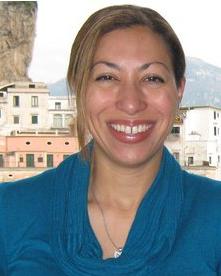
Download Image: Web
Forensic anthropologist, Elizabeth DiGangi, Ph.D., will address the Lycoming College and Williamsport communities with her presentation, “Broken Bones & Buried Bodies: Forensic Anthropology and Human Identification.” The event, part of the archaeology colloquium at the College, will take place Monday, Oct. 2 at 7:30 p.m. in Heim G-9 on the Lycoming College campus. It is free and open to the public.
According to DiGangi, forensic anthropology outside of the United States is typified by practitioners working in contexts of large-scale human rights violations. During her talk, she will discuss how massive victim numbers can complicate the investigative process, and how such a large logistical undertaking often creates enormous obstacles to identification of those who have died. Problems and solutions for the overall issue of human remains analysis and identification overseas will be discussed, with emphasis on the countries of Algeria and Colombia.
DiGangi is well-known for her work at the Carlisle Indian Industrial School in Carlisle, Pa., where she recently helped to identify the remains of three boys who died there during the late 19th century. The government-run school separated Native American children from their families, forcing the children to assimilate with Americans. More than 10,000 children endured harsh conditions at the school, many of whom died from disease and were buried on the premises. She has done similar identification research in Algeria and Colombia, performing DNA tests on remains found at mass graves in those countries.
“Due to the interdisciplinary nature of Dr. DiGangi’s work, her talk will appeal to a wide audience that includes people with interests in not just anthropology, but also sociology, archaeology, criminal justice and biology,” said Ryan Adams, associate professor of anthropology/sociology at Lycoming. “As a liberal arts institution, Lycoming strives to instill critical thinking skills and a desire for life-long learning in students. This event is a wonderful opportunity for Lycoming students to see how different branches of learning can intersect to make new discoveries and problem solve.”
DiGangi is an assistant professor of anthropology at Binghamton University. She is a board-certified forensic anthropologist, and in addition to conducting cases for local law enforcement, has served in a mentoring capacity for the countries of Colombia, Algeria and Mexico. She is co-editor of “Research Methods in Human Skeletal Biology,” and co-author of the forthcoming “Forensic Taphonomy and Ecology of North American Scavengers.”